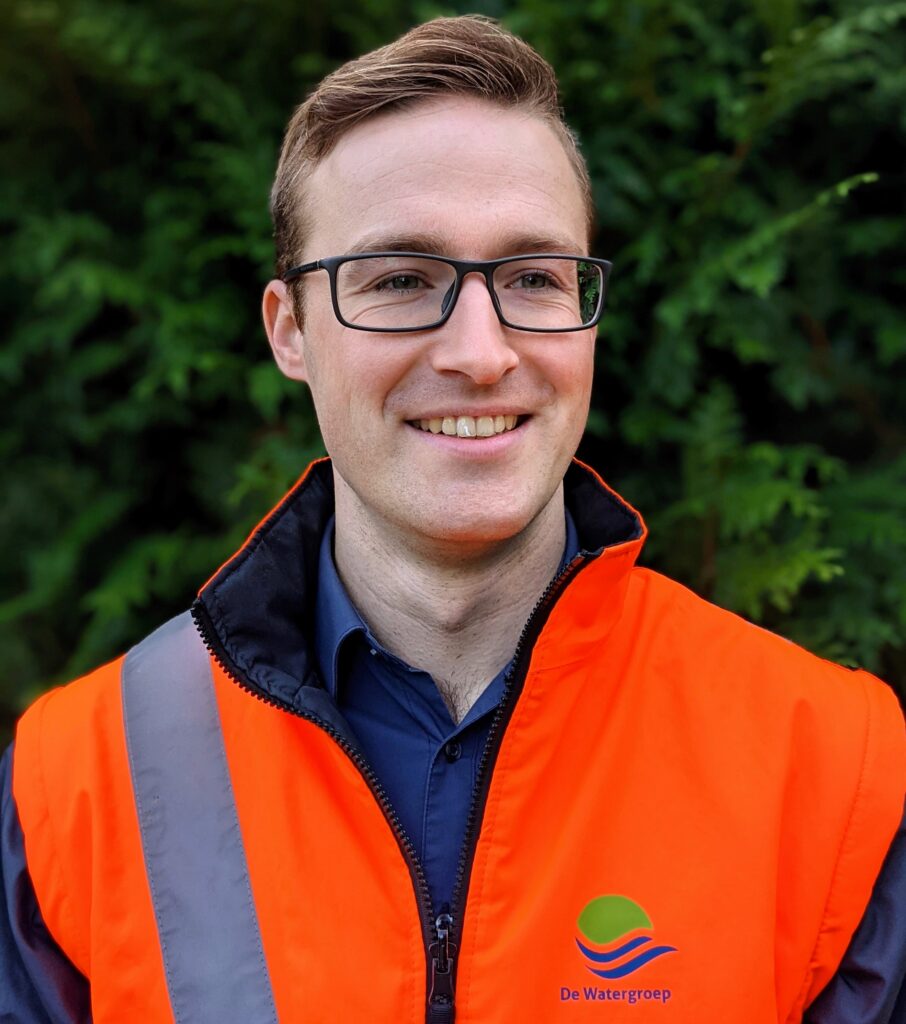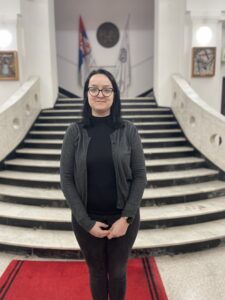Benjamin Hermans from Belgium:
De Watergroep decided to sponsor a second employee participant in EJWP. This was me, in EJWP2. My current role at De Watergroep is as a process engineer. I studied bio chemistry at KU Leuven and UHasselt in Belgium. I worked for Royal Haskoning DHV as a project engineer for more than a year, and made the decision during this time to make a career change toward the water sector. I’ve been at De Watergroep for five years, working on the design and optimization of the drinking water treatment.
On Training
EJWP is a program with a lot of opportunities. I was motivated to join to get to know the water sector as a whole. EJWP is a great opportunity to enhance networks and to get a broad view with actionable knowledge of the water sector.
Trainings in the course improve needed skills. As an EJWP-group working on the different projects, we can immediately apply the learned skills in the projects. Furthermore, these projects provide a safe environment to try the new techniques and tools and refine them, contributing to the learning experience.
For example, in the first project we had to communicate about the Value of Water. Right before starting this project, we received a training on communication, so then the newly-learned skills could be put into practice. It is helpful to think about communication and how water value is perceived by different sectors. It is becoming more important to communicate the true value of water across sectors to create awareness – and even more importantly, the urgency. It was also an open EJWP project in which the client gave a lot of freedom for us to determine the direction. I can say that it is difficult to start like this, but such a range of approach options also provides opportunities of working together to see what fits best for our EJWP group, and how to best move forward. It’s clearly a challenge and an opportunity at the same time.
For water organizations
There are a number of good things regarding EJWP and its interactions with water organizations. Collaboration between the companies in the water sector is quite beneficial to everyone, as water of course flows across borders. Most of the major sector problems cannot be solved by one company. Now and in the future, collaboration will be highly valuable and needed. This is important for any sector which evolves and has new technology and new problems. Providing training especially for the young employees helps them adapt to new challenges.
The work EJWP has done with De Watergroep is valuable, even more so in that we were a group with different backgrounds providing new insights and perspectives on the project for De Watergroep. The content of our soft skills training has also been shared internally in De Watergroep through several podcasts.
Challenges in the water sector
The water sector is an enormous sector, as any industry relates to water usage. In an ideal world, we would find more effective and long-term solutions to the pollution of water resources. Anything we do leaves its mark on our limited and precious resources. We should all look more at circular economies to reuse and draw less from resources in order to have more of this kind of circular water use. This is a step toward avoiding pollution and using/re-using to recognize water at its true value.
The biggest challenge currently is the fast-changing environment due to climate change. We have the technology available, but as the water sector changes so rapidly, it’s difficult in our current infrastructure to change the whole setup to adapt to the changing environment and water resources. We must further adapt through transforming current methods for higher temperatures, heavy rain and no rain.
I am looking toward working more together on the EU level. This is only normal, because as mentioned that water flows through countries. Our water management cannot be looked at with a narrow point of view. International cooperation is needed for a more climate-resilient and robust water sector.






